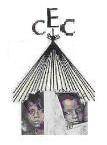UKCEC stands for the UK Centre for Ethnic Children. The parent CEC in Bangladesh
is called the Centre for Ethnic Children, acknowledging that most of the children and women enduring exploitation in that
country are from ethnic minority groups. Sometimes these are known as tribal or hill-country people.
As Britain celebrates the passing of legislation 200 years ago to end slave trading, it is sobering to realise
that slavery still exists. Women and children are being bought and sold, kidnapped, brutalised for various reasons including for
the sex trade, even as you read this.
Some of the motivation for people trafficking is well known: girls and young women duped into thinking they
are heading for a well-paid job are beaten into submission, then sold to pimps. Children of both sexes from poor families
are lured to lucrative jobs or kidnapped, then forced to satisy the lusts of "sex tourists" who use children
to meet their desire for so-called 'safe sex'.
Hundreds of thousands of women and children are trafficked each year to the Middle East through
India, Pakistan and Thailand from Bangladesh, Nepal and parts of India as well as Vietnam, Cambodia, Laos & China.
Unauthenticated sources claim that victims from Bangladesh and Nepal alone amount to around four
hundred thousand each year that end up in forced prostitution.
Some of the kidnapped youngsters are taken specifically to be sold as domestic slaves. Or camel jockeys.
Or to work in sweat shops.
In the Middle East, camel racing is popular. Too heavy a jockey slows the animal down. The younger the male child
- less than 15 kgs. of weight - who may be attached to the camel with Velcro (TM) the more frightened he is. The louder
he screams, the more alarmed the camel becomes and the faster it runs trying to escape the sound. Children kidnapped in Bangladesh
have been found "employed" as camel jockeys in the United Arab Emirates.
Employment or slavery?
The distinction is not always clear. Mobility is a right. But when it comes to mobility of women and children
in vulnerable economies such as the Eastern European, African and some Asian economies, human mobility mainly stands
for 'labour migration' from a non-economic zone to a growing economy just to survive and support the family. Well organized
gangs of human traffickers transact more than $11b a year. That's the second largest illegal trade after weapons
in the globe today.
Fighting human trafficking is like fighting poverty, all these innocent eyes are looking for your help.

